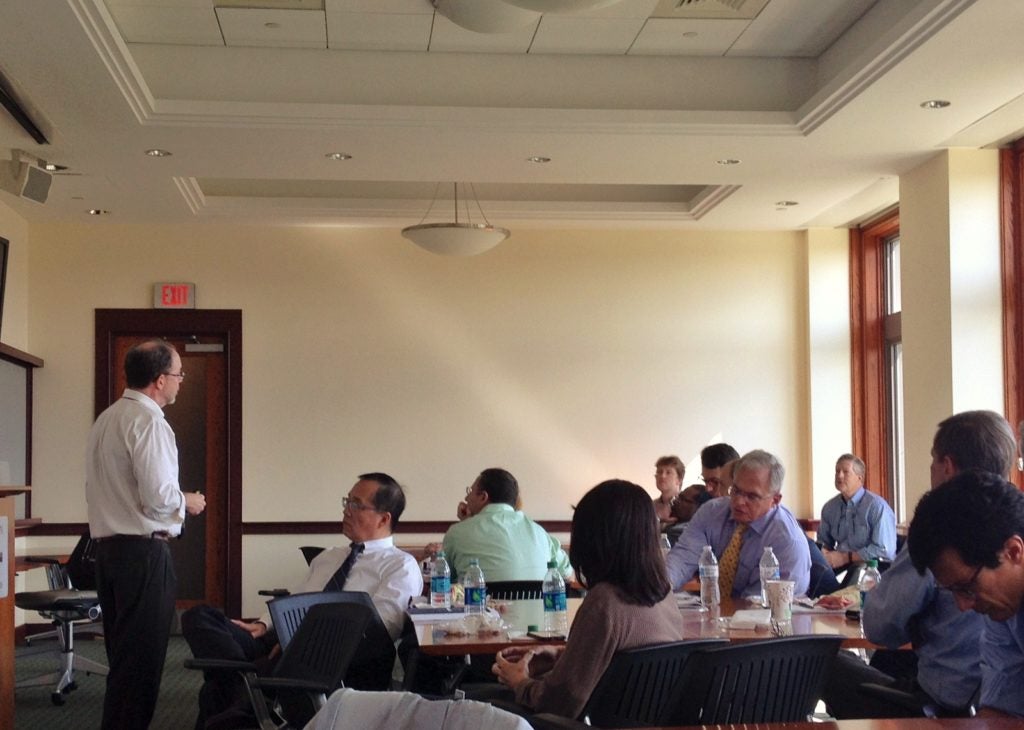Jensen, Quinn, and Weymouth issue policy paper: “Winners and Losers in International Trade: Effects on U.S. Presidential Voting”
Posted in Announcements News | Tagged News - International Trade

Senior Policy Scholar J. Bradford Jensen and Faculty Affiliates Dennis Quinn and Stephen Weymouth recently issued a paper, “Winners and Losers in International Trade: Effects on U.S. Presidential Voting,” that has attracted media attention.
Trump won in counties that lost jobs to China and Mexico , The Washington Post (December 2, 2016)
And economists J. Bradford Jensen, Stephen Weymouth and Dennis P. Quinn point out that incumbent parties are more likely to lose votes when imports increase and exports decrease, particularly in swing states where low-skilled manufacturing workers face competition from imports.
The Trade Protectionist Turn in U.S. Presidential Politics , Forbes (September 9, 2016)
An op-ed by J. Bradford Jensen, McCrane/Shaker Chair in International Business,Dennis Quinn, professor of international political economy with a focus on public policy, and Stephen Weymouth, assistant professor of international business and public policy: In an unusual turn in American politics, the presidential nominees of both major parties are opposing expansion of free trade in general, and President Obama’s Trans-Pacific Partnership (TPP) agreement in particular. Trade continues to be a big issue on the campaign trail, as both Donald Trump and Hillary Clinton recently outlined their economic plans, speaking out against the TPP.
How Trade Affects the Vote for President , The Wall Street Journal (August 22, 2016)
Global trade can produce winners and losers in the marketplace—and also in politics, according to a new paper…Authors Bradford Jensen, Dennis Quinn and Stephen Weymouth of Georgetown University’s McDonough School of Business examined county-level election results since 1992 and national-level results since 1936. It’s the first study to demonstrate that increasing employment in high-skilled industries affects voting, showing the divergent distributional effects for both winners and losers in trade.
Relation of Trade to Election , Bloomberg Radio (August 15, 2016)
Dennis Quinn, Professor of International Political Economy at Georgetown University’s McDonough School of Business, on new study: “Winners and Losers in International Trade: Effects on U.S. Presidential Voting.”
Here’s Why Donald Trump Could Win Ohio and Michigan , Fortune (August 9, 2016)
So why have the candidates moved left on trade, even if the electorate has not? Economists Bradford Jensen, Dennis Quinn, and Stephen Weymouth of Georgetown’s McDonough School of Business may have an answer. In a new working paper shared with Fortune, the economists show that international trade “directly influences U.S. presidential elections.” The incumbent party tends to win counties with more highly skilled service sector jobs, not the type that are typically lost to trade, and lose counties in which there is a high concentration of trade sensitive low-skilled manufacturing.
